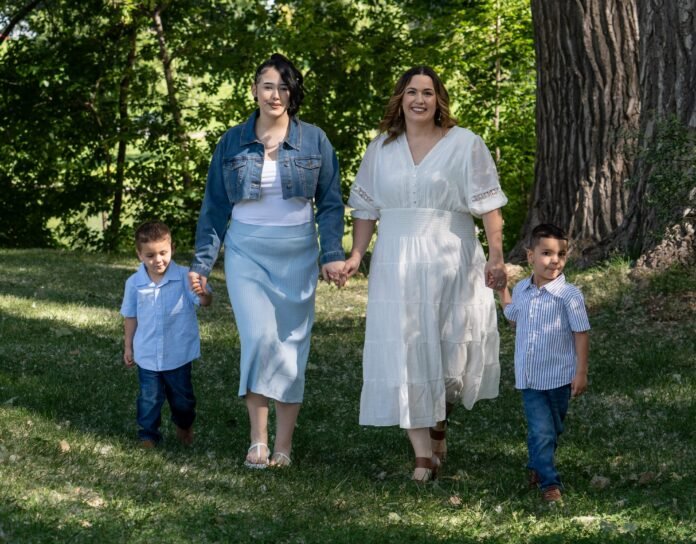“They normalized my shame, they normalized my use, and for once, I felt sane in that clinic and not judged,” Valerie Jansen said. “I felt a sense of hope, like I’m finally somewhere, and it was right where I needed to be for that moment.”
That moment came four years ago, when Jansen was pregnant with her third child and fighting a lonely battle with substance use disorder. The sense of hope that had been missing in her life was restored after she discovered the Substance Use & Pregnancy, Recovery, Addiction, Dependence (SUPeRAD) clinic operated by University of Utah Health (U of U Health).
“Without SUPeRAD, I can only imagine what direction my life could have gone,” Jansen said. The clinic was a place where she felt seen and accepted. “I found connection. I found people who showed up for me. I found a place where I belonged, and my madness made sense.”
“For years, substance use disorder has not been addressed as the chronic illness it is,” says Marcela Smid, MD. “It has been addressed as a moral issue or somehow a failure to parent or make good choices.”
Smid is a maternal-fetal medicine and addiction medicine physician at U of U Health. In 2017, she teamed up with Jasmin Charles, MS, PA-C, a certified physician associate, to open the university’s first SUPeRAD clinic. Smid serves as medical director while Charles is clinical director of the SUPeRAD program.
Smid and Charles opened the clinic in response to the rapidly increasing opioid epidemic, knowing there were not specific perinatal services in the Mountain West region. They knew stigma, trauma, lack of access, medical mistreatment and fear of being unfairly judged were creating barriers for women who needed prenatal care.
In most settings, “You are judged immediately, and you are a horrible person,” Jansen said, “All that shame. I know what shame is, and it held me in a lot of spaces. That’s why we sometimes believe we deserve these bad things that are happening to us and it’s embarrassing to ask for help.”
“The clinic became a safe space for everyone to be treated as a human,” Charles said. “To provide an unbiased, judgment-free zone and have an open door to meet people where they are at.”
When Jansen walked through the doors at SUPeRAD , she immediately knew this pregnancy and her postpartum journey would be different for her and her children.
“You go into SUPeRAD, hear some options,” Jansen said. “They offer the empowerment, the wisdom, and the normalization. All the pieces connect to help you, and that one little piece can play an important part in your journey.”
Like 80% of pregnant women with a substance use disorder, Jansen obtained sobriety on her own before delivering her second child. However, the unspoken and not clearly addressed issues arrive six to nine months postpartum, with high risks for return to use and overdose contributing to one of the leading causes of maternal mortality in the one-year postpartum period.
Following the birth of her second child, Isaiah, Jansen said, “I didn’t want to go back to that deep dark addiction. But I still didn’t have enough support to keep me afloat. I didn’t have enough therapy, and I still wasn’t healed. I still had false beliefs that were leading me into these behaviors.”
Those old beliefs and behaviors are one of the main reasons why Smid and Charles follow their patients for up to a year after they give birth. It’s one of the hardest parts of the journey to navigate—when the pregnancy ends, the noise returns. “The stress, sleep deprivation, postpartum depression, anxiety, finances, etc.,” Smid said. “That’s when people really start to circle the drain, return to use, and some ultimately die.”
When Jansen learned she was pregnant with her third child, she was committed to ending the cycle of drug use and dependance that limited her ability to thrive as a mother and a person.






